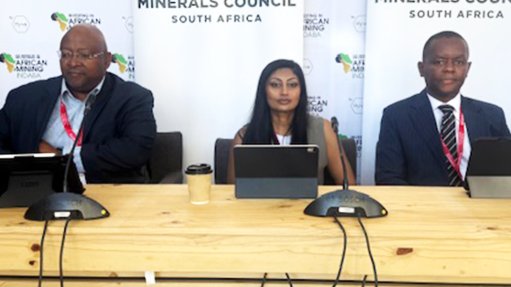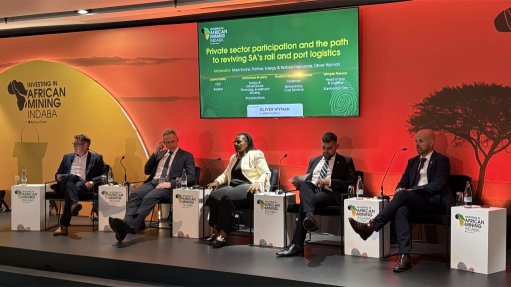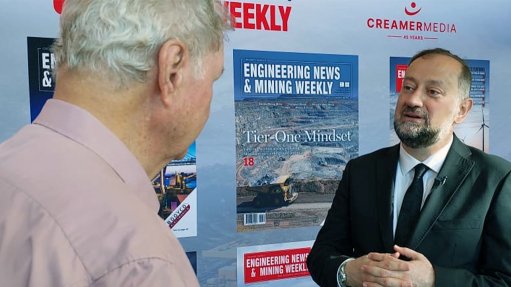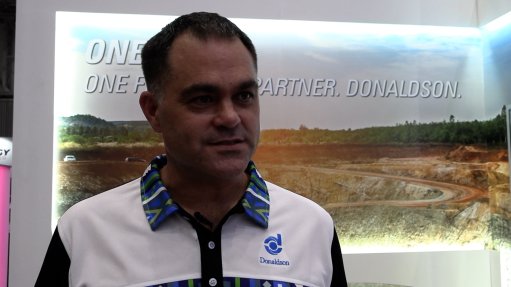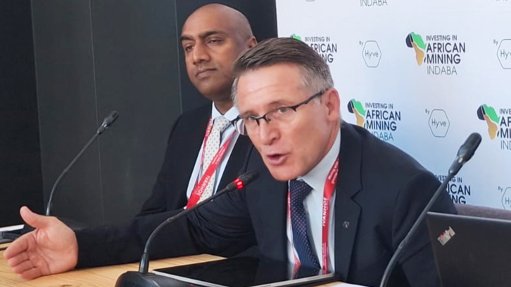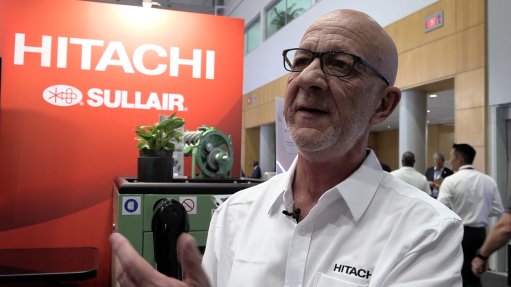Disjointed education system hinders African engineering students

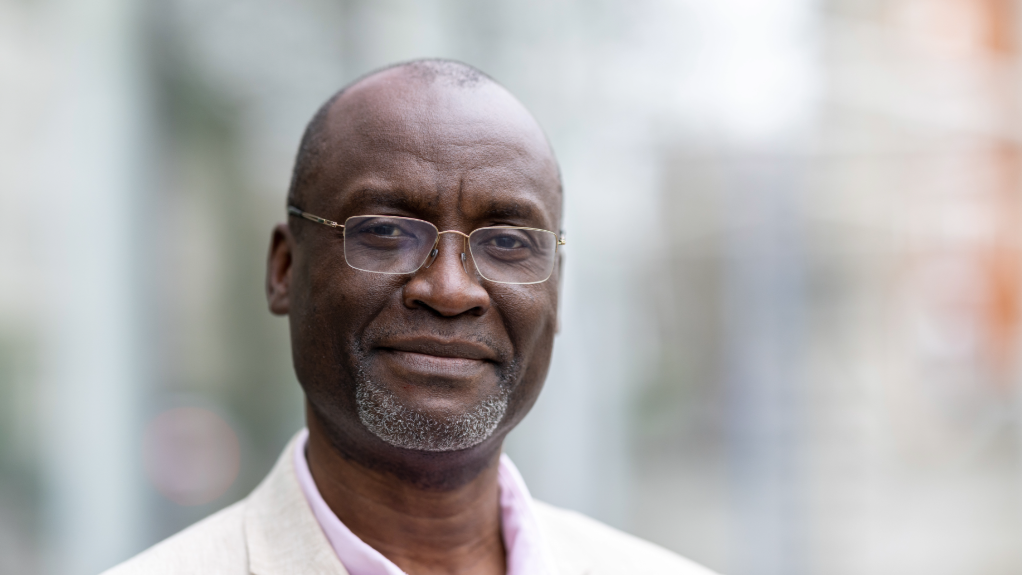

PROFESSOR WASHINGTON OCHIENG Ochieng says that universities ought to work more closely with governments and industry to ensure that what is taught directly supports national development priorities
THEORY-PRACTICE ALIGNMENT Leadership must be a shared contribution between governments, universities and civil society in Africa
Africa’s youth are its greatest resource – with over 60% of the continent’s population under the age of 25, this generation is the youngest, largest and arguably the most climate-conscious in history, says international engineering body Royal Academy of Engineering’s African Engineers steering committee chairperson Professor Washington Yotto Ochieng.
He states that a growing number of young Africans aspire to ‘green’ careers, driven by a desire to tackle climate change and build a sustainable future.
Yet, despite this ambition, too many aspiring engineers find themselves constrained by education systems that do not match their aspirations. The result is a mismatch between their climate-aware career goals and the practical skills they need to deliver solutions.
“To put that challenge into perspective, Africa is the region with the lowest number of engineers per capita worldwide, a shortage that poses a critical barrier to socioeconomic progress, and to responding effectively to the climate crisis. This shortfall is not just about numbers, but about how universities prepare the engineers they train.”
Despite strengths in engineering education across Africa, the education system does not always align with national development priorities. There is, therefore, a persistent disconnect between what is taught in classrooms and the realities of the workplace, particularly in relation to sustainability.
Students eager to design renewable-energy systems or apply circular economy principles often face limited access to practical facilities, laboratories, or industry-linked training, says Ochieng.
Universities also tend to continue to organise themselves by traditional specialisations, despite students being increasingly motivated by the end goal of helping to solve societal challenges, such as clean energy supply or waste reduction, which requires knowledge from multiple engineering branches and other disciplines.
Where alignment does occur, the results are impressive, he states.
“The Royal Academy of Engineering’s Africa Prize for Engineering Innovation, for example, showcases young entrepreneurs tackling challenges from sustainable agriculture to renewable-energy distribution. Of course, across the continent of Africa, there is extraordinary creativity and ambition, but sometimes a systematic approach to equipping students with the right mix of technical, conceptual and systemic green skills, and the resources to apply them, can be lacking,” says Ochieng.
Breaking Down Silos
The most effective way to close this gap is to adopt a systems approach – a holistic method that demands collaboration across engineering disciplines and communities.
“In my own professional life, I have identified four essential communities: of knowledge, of impact, of influence and of awareness. When brought together, these provide the breadth of perspective needed to design effective climate solutions,” he avers.
Such an approach recognises that climate change cannot be solved in silos. Engineers must be able to see the bigger picture, linking energy, environment, health, technology and society as interdependent systems. Teaching this mindset starts with focusing on the overarching societal challenge before showing students how each engineering discipline, along with related subject areas, can contribute to solving the problem.
For example, decarbonising cities involves overall infrastructure planning but also innovation in vehicle design, construction methods, waste management, power supply and human activities or behaviours. In this way, students learn not only to solve problems within their field but also to collaborate across disciplines to create solutions that are resilient, inclusive and fit for purpose.
To achieve this, sustainability cannot be treated as an optional add-on. “It must be woven into the very fabric of engineering education: renewable energy, sustainable infrastructure and circular economy principles should be core, not electives.”
Ochieng states that universities should work more closely with governments and industry, ensuring that what is taught directly supports national development priorities. More importantly, “education reform must be revolutionary, not evolutionary”.
He avers that incremental adjustments will not match the urgency of Africa’s development needs or its environmental and sustainability challenges.
“Transforming engineering education in Africa will require bold investment. Commitments must be made to equip universities with modern facilities, fund research and support educators to deliver fit-for-purpose training. Investing in young engineers means building the workforce that will drive green growth, create jobs and strengthen resilience across the continent.”
He adds that international partners have a role to play, but leadership must come from within Africa, with governments, universities and civil society working together.
Ochieng stresses that, if green skills and systems thinking are successfully embedded, transformational change could occur within a decade.
“Imagine a continent where graduates are designing renewable-energy systems for off-grid communities, developing sustainable transport solutions for rapidly growing cities, or pioneering low-carbon construction methods suited to local materials. With the right investment and vision, this is not a distant dream but an achievable future.”
He avers that Africa’s young people are ready, motivated, innovative and climate conscious. The responsibility lies with universities, governments and industry to match that energy with opportunity.
“Failing to do so would not just let down a generation, but risk holding back the continent’s sustainable growth. Meeting the challenge will unlock the ingenuity of Africa’s Gen Z engineers, ensuring they can build the inclusive and resilient future they urgently want to help bring about.”
Article Enquiry
Email Article
Save Article
Feedback
To advertise email advertising@creamermedia.co.za or click here
Press Office
Announcements
What's On
Subscribe to improve your user experience...
Option 1 (equivalent of R125 a month):
Receive a weekly copy of Creamer Media's Engineering News & Mining Weekly magazine
(print copy for those in South Africa and e-magazine for those outside of South Africa)
Receive daily email newsletters
Access to full search results
Access archive of magazine back copies
Access to Projects in Progress
Access to ONE Research Report of your choice in PDF format
Option 2 (equivalent of R375 a month):
All benefits from Option 1
PLUS
Access to Creamer Media's Research Channel Africa for ALL Research Reports, in PDF format, on various industrial and mining sectors
including Electricity; Water; Energy Transition; Hydrogen; Roads, Rail and Ports; Coal; Gold; Platinum; Battery Metals; etc.
Already a subscriber?
Forgotten your password?
Receive weekly copy of Creamer Media's Engineering News & Mining Weekly magazine (print copy for those in South Africa and e-magazine for those outside of South Africa)
➕
Recieve daily email newsletters
➕
Access to full search results
➕
Access archive of magazine back copies
➕
Access to Projects in Progress
➕
Access to ONE Research Report of your choice in PDF format
RESEARCH CHANNEL AFRICA
R4500 (equivalent of R375 a month)
SUBSCRIBEAll benefits from Option 1
➕
Access to Creamer Media's Research Channel Africa for ALL Research Reports on various industrial and mining sectors, in PDF format, including on:
Electricity
➕
Water
➕
Energy Transition
➕
Hydrogen
➕
Roads, Rail and Ports
➕
Coal
➕
Gold
➕
Platinum
➕
Battery Metals
➕
etc.
Receive all benefits from Option 1 or Option 2 delivered to numerous people at your company
➕
Multiple User names and Passwords for simultaneous log-ins
➕
Intranet integration access to all in your organisation











